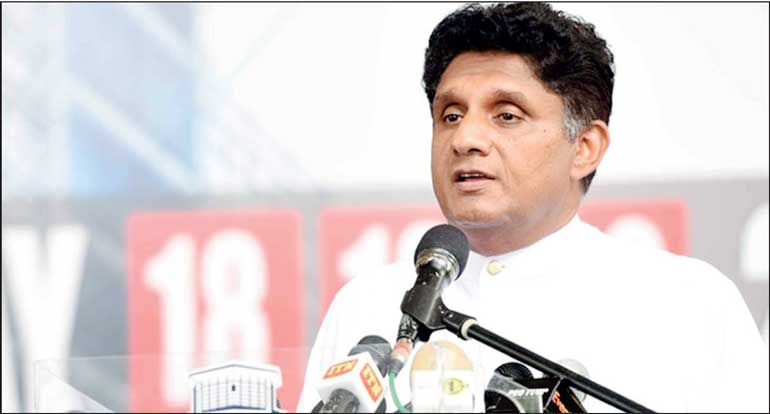Sunday Feb 22, 2026
Sunday Feb 22, 2026
Wednesday, 5 October 2022 00:15 - - {{hitsCtrl.values.hits}}

Opposition Leader Sajith Premadasa
Opposition Leader Sajith Premadasa speaking in Parliament yesterday said the fisher communities in Sri Lanka are facing serious issues due to the price hikes relating to kerosene and other types of fuel.
Pointing out that the livelihood of the fisher community has completely been affected by the price revision on fuel, the Opposition Leader urged the Government to immediately solve this problem.
“This has resulted in the supply of fish, the most common and cheap source of protein, dwindling at a time the country is also facing issues relating to child malnutrition. Therefore, this has become an issue that affects the whole community and not just the fisher community in Sri Lanka,” he said.
Premadasa pointed out that the Government’s failure to provide diesel to at least 4,500 multi-day trawlers and 25,000 small fishing vessels is only worsening the crisis.
“The increase of kerosene from Rs. 87 to Rs. 340 has affected the livelihood of small fishing vessel fishermen. It has become impossible to engage in their trade,” he noted, adding that fish supplies have reduced while cost has also arisen, further burdening the consumers.
Accordingly, Premadasa posed a series of questions to the Government under Standing Order 27(2). Recalling President Ranil Wickremesinghe’s promise in Parliament on 6 July to provide the increased cost of kerosene as a subsidy to fishermen, Premadasa noted that no such relief has been forthcoming. “Will the Government provide this subsidy to the fisher communities and if so, when?” he asked.
He questioned if the Government will provide any discounted rates for diesel, engine oil and other inputs necessary for fisherfolk to engage in their trade. Premadasa also requested information on damages remaining to be distributed to fisher communities affected by the X-press Pearl disaster and the process in which the Government hopes to carry the program out.
Premadasa also posed questions about increasing fisheries imports and the negative effects faced by those linked to the fisheries industry such as ice producers, and freezer truck owners due to the current crisis and the current status of the voluntary pension scheme introduced for fishermen in the country.